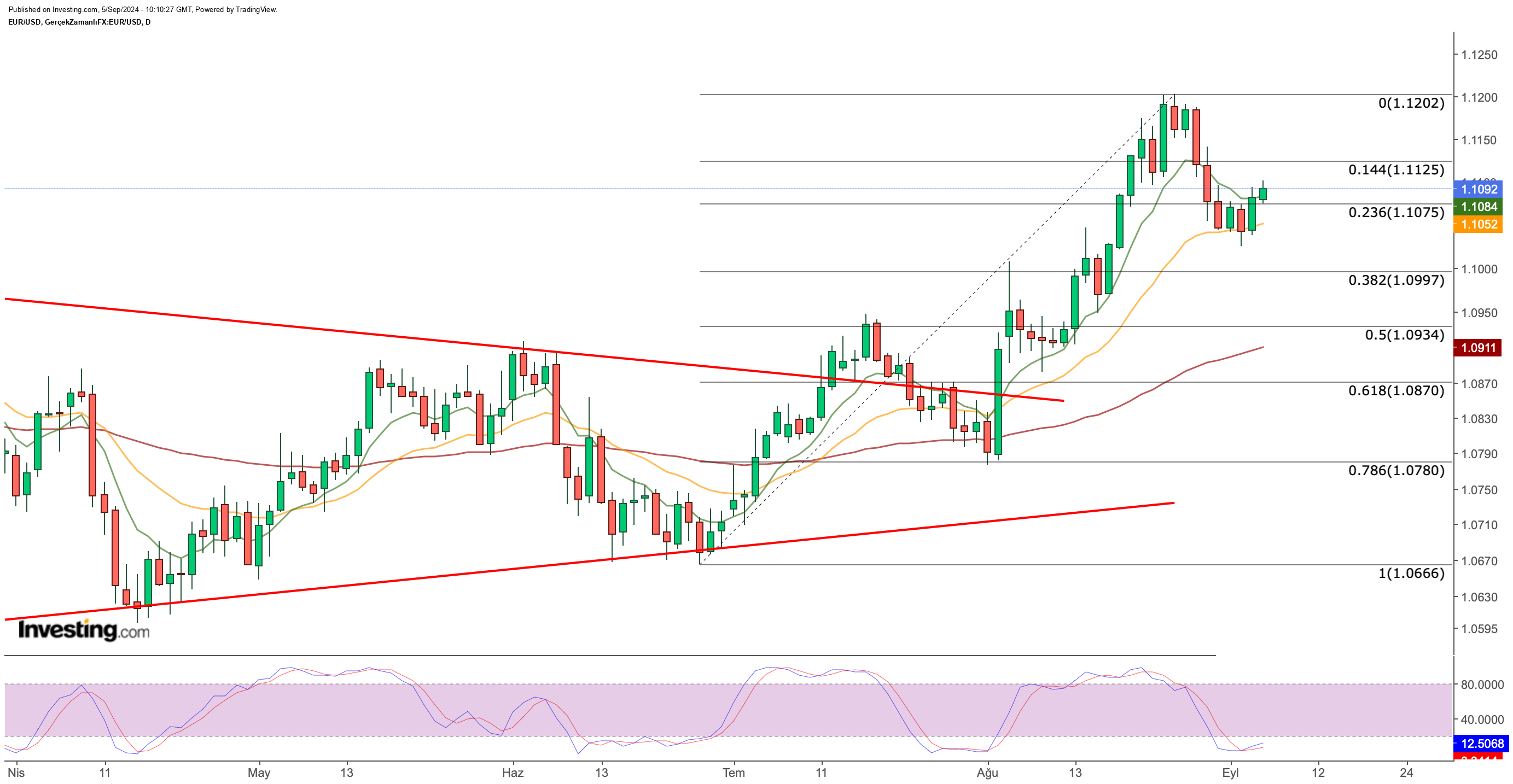- EUR/USD traders are eyeing crucial U.S. economic data due tomorrow.
- The pair found support around 1.105 this week after hitting a yearly high in August.
- A break above a key resistance could push the pair higher, based on key jobs report due tomorrow.
- For less than $8 a month, InvestingPro's Fair Value tool helps you find which stocks to hold and which to dump at the click of a button.
EUR/USD traders are closely monitoring this week’s U.S. economic data as recession concerns grow. With the critical jobs report in focus, the direction of the pair hinges on how the data shapes expectations around the size of the first rate cut by the Fed.
The Beige Book, released yesterday, highlighted a slowdown in economic activity across the country. Meanwhile, the JOLTs report showed a drop in job openings from 7.91 million to 7.67 million, hitting the lowest level since January 2021.
These data points have cast doubt on the idea of a soft landing for the economy. As a result, markets quickly began re-pricing the odds of a 50 basis point Fed rate hike this month. The US dollar, which had partially recovered to the 102 level last week, slipped by half a point to around 101.2 this week.
The data slate remains packed today, with a slew of data to be released ahead of tomorrow's nonfarm payrolls and unemployment rate reports.
With market sentiment still highly sensitive to growth signals, tomorrow's employment data will play a critical role in guiding the next direction for the EUR/USD pair.
Technical View: EUR/USD
EUR/USD hit a yearly high of 1.12 at the end of August, and the pair has since found support around 1.105 this week as critical economic data continues to roll in. Yesterday, demand for the euro lifted the pair back to 1.1075, signaling renewed strength.

If upcoming data confirms further weakening in the labor market, recession fears may grow, potentially driving EUR/USD higher towards the 1.12 level, especially if it breaks above 1.1125 with strong momentum.
On the other hand, strong employment data could ease recession concerns, shifting focus back to the Fed's anticipated 25-basis-point rate cut. In this scenario, EUR/USD might break below 1.1025, opening the door for a potential decline towards 1.09.
***
Disclaimer: This article is for information purposes only. It is not intended to encourage the purchase of assets in any way, nor does it constitute a solicitation, offer, recommendation or suggestion to invest. I would like to remind you that all assets are valued from multiple angles and present a high degree of risk, so any investment decision and the associated risk are at the investor's own risk. We do not provide investment advisory services. We will never contact you to offer investment or advisory services.
